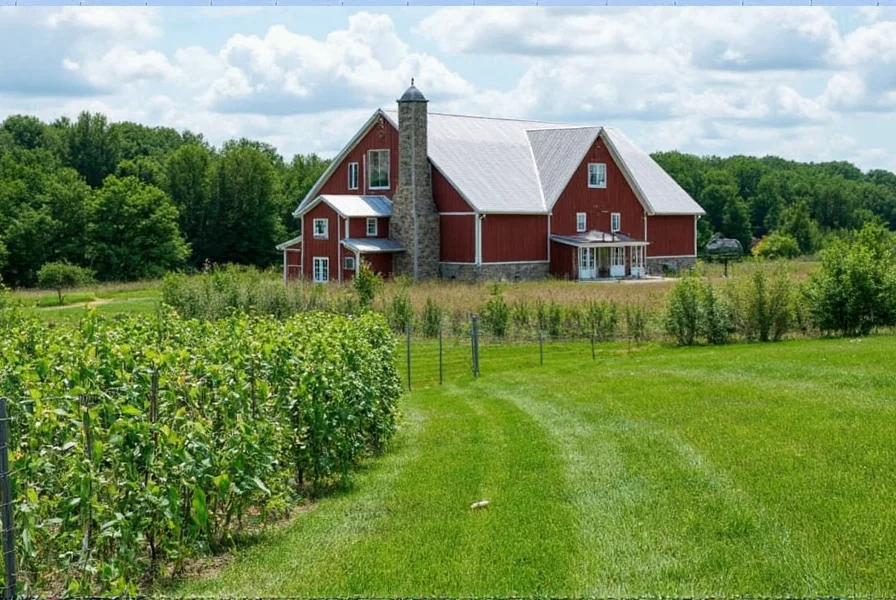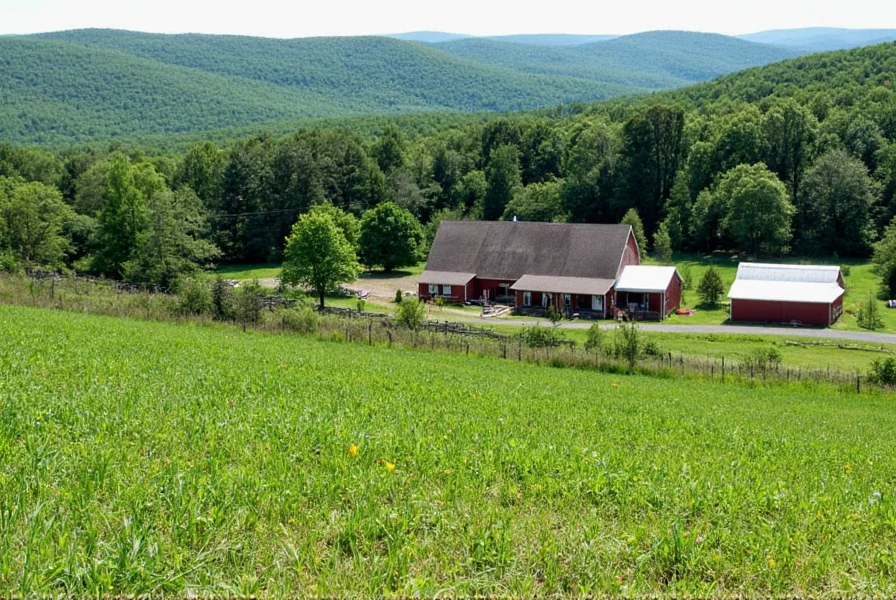When researching ginger hill sustainable farming practices, it's important to understand the comprehensive approach this Pennsylvania-based agricultural operation takes toward land stewardship. Ginger Hill Farm has established itself as a model for regenerative agriculture in the Mid-Atlantic region, demonstrating how farming can work in harmony with natural ecosystems rather than against them.
History and Development of Ginger Hill Farm
Established in the early 2000s, Ginger Hill Farm began as a small-scale organic operation that has gradually expanded its sustainable practices. The property was previously used for conventional farming before transitioning to regenerative methods. This transformation involved soil remediation, water management system installation, and the development of diverse crop rotation schedules that support biodiversity.
Understanding what makes ginger hill farm unique requires examining its commitment to closed-loop systems. Unlike traditional farms that rely on external inputs, Ginger Hill has developed systems where waste from one process becomes the resource for another, creating a self-sustaining agricultural ecosystem.
Regenerative Agriculture Practices at Ginger Hill
Ginger Hill's farming methodology represents a significant shift from conventional agricultural approaches. Their practices include:
| Practice | Description | Environmental Impact |
|---|---|---|
| No-till farming | Maintaining soil structure by avoiding plowing | Reduces erosion, increases soil carbon |
| Multi-species cover cropping | Planting diverse plant species between cash crops | Improves soil health, suppresses weeds |
| Rotational grazing | Moving livestock regularly across pastures | Enhances soil fertility, mimics natural patterns |
| Agroforestry systems | Integrating trees with crops and livestock | Increases biodiversity, provides windbreaks |
These methods collectively contribute to what researchers call soil carbon sequestration at ginger hill, a process that not only improves crop yields but also helps mitigate climate change by storing carbon in the soil.

Educational Programs and Community Engagement
Ginger Hill Farm serves as an educational resource for the surrounding community and beyond. Their programming includes:
- Seasonal workshops on sustainable gardening techniques
- School field trip programs focused on ecology and agriculture
- Apprenticeship opportunities for aspiring farmers
- Public farm tours showcasing regenerative practices
The farm's commitment to community education at ginger hill extends to hosting regular events that connect urban residents with agricultural processes. These programs have become particularly valuable as interest in local food systems continues to grow.
Event Hosting and Venue Features
Beyond its agricultural operations, Ginger Hill Farm has developed a reputation as a distinctive venue for various events. The property features multiple spaces suitable for:
- Weddings and celebrations
- Corporate retreats and team-building activities
- Wellness workshops and retreats
- Seasonal festivals and community gatherings
What sets Ginger Hill apart as an event venue in chester county is its integration of the working farm environment into the event experience. Guests can often participate in farm activities or enjoy meals prepared with ingredients harvested directly from the property.
Visiting Ginger Hill Farm
For those interested in experiencing Ginger Hill firsthand, the farm offers several opportunities for public engagement. While primarily a working farm, they maintain regular visiting hours for their farm stand and host special open house events throughout the year.
When planning how to visit ginger hill farm, consider these practical details:
- Location: Chester County, Pennsylvania (approximately 45 minutes west of Philadelphia)
- Seasonal hours: Wednesday-Saturday, 9am-5pm (varies by season)
- Parking: Ample on-site parking available
- Accessibility: Some areas have uneven terrain; contact in advance for specific accessibility needs
- Admission: Free for general farm stand visits; event fees vary
The farm's commitment to maintaining a working agricultural operation means visitors should expect to see active farming activities during their visit, which adds to the authentic experience of understanding sustainable agriculture at ginger hill.
Researching Ginger Hill Farm Resources
For those seeking more detailed information about Ginger Hill's specific practices, several resources are available. The farm maintains an informative website with updates on current projects, an events calendar, and educational materials about regenerative agriculture.
Additional resources for learning about ginger hill farm sustainable practices include:
- Local agricultural extension office publications
- Interviews with farm managers in regional farming publications
- Documented case studies from sustainable agriculture organizations
- Visiting during scheduled educational events for direct observation
Conclusion
Ginger Hill Farm represents an evolving model of sustainable agriculture that successfully balances productive farming with environmental stewardship. Its approach to regenerative practices offers valuable insights for both agricultural professionals and community members interested in local food systems. The farm's integration of education, community engagement, and practical farming demonstrates how agricultural operations can serve multiple purposes while maintaining ecological integrity.
What is Ginger Hill Farm known for?
Ginger Hill Farm is primarily known for its regenerative agriculture practices on approximately 120 acres in Chester County, Pennsylvania. The farm has gained recognition for implementing sustainable farming methods including no-till cultivation, multi-species cover cropping, rotational grazing, and agroforestry systems that improve soil health and biodiversity.
Can the public visit Ginger Hill Farm?
Yes, Ginger Hill Farm offers public visiting hours for their farm stand typically Wednesday through Saturday, 9am-5pm, with seasonal variations. They also host regular educational events, workshops, and open house days that are open to the public. Some areas may have uneven terrain, so visitors with specific accessibility needs should contact the farm in advance.
Does Ginger Hill Farm offer educational programs?
Yes, Ginger Hill Farm provides various educational programs including seasonal workshops on sustainable gardening, school field trip opportunities, farmer apprenticeships, and public farm tours. These programs focus on regenerative agriculture practices, soil health, and connecting community members with food production processes.
What types of events can be hosted at Ginger Hill Farm?
Ginger Hill Farm serves as a venue for weddings, corporate retreats, wellness workshops, and community events. The property features multiple spaces including rustic barns and outdoor areas surrounded by working farmland. What makes events at Ginger Hill distinctive is the integration of the active farm environment into the event experience.
How does Ginger Hill Farm contribute to sustainable agriculture?
Ginger Hill Farm contributes to sustainable agriculture through its implementation of regenerative practices that improve soil health, increase biodiversity, and sequester carbon. Their methods include no-till farming, multi-species cover cropping, rotational grazing systems, and agroforestry. The farm serves as a demonstration site for these practices and shares knowledge through educational programs and community engagement.











 浙公网安备
33010002000092号
浙公网安备
33010002000092号 浙B2-20120091-4
浙B2-20120091-4